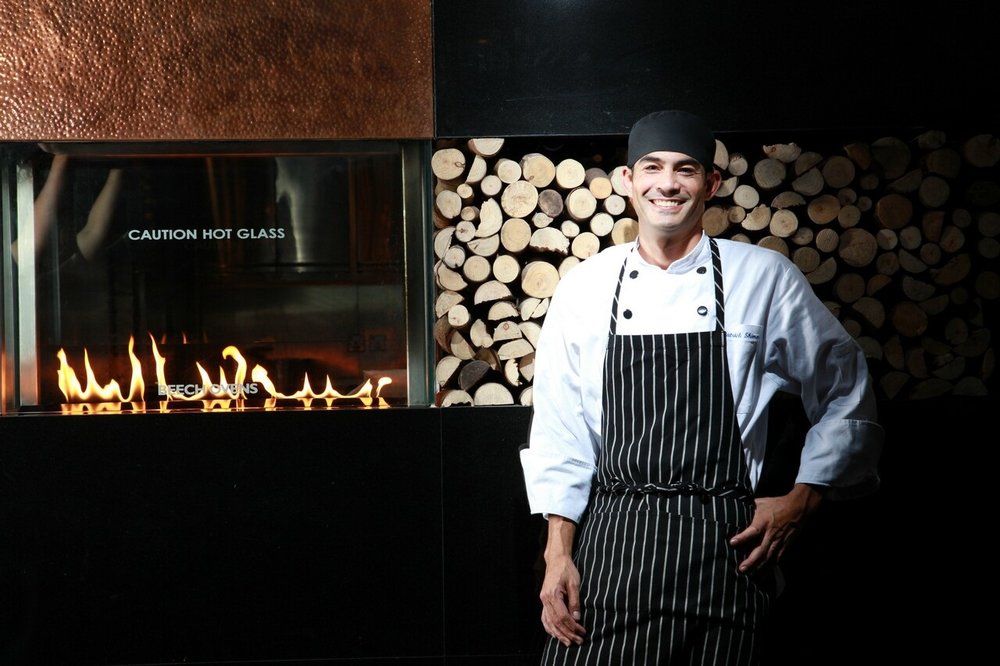Comfort Food, the Californian Way
24th September 2017
178 Degrees is focused on showcasing the finest New Zealand products in Hong Kong. This couldn’t be done without the support of dedicated chefs who care deeply about the provenance of the food they serve, and inspire us with their innovative cuisine and cooking philosophies.
Over the next few weeks, we’ll be sharing a few of their personal stories, what they like to cook and where they think the future of food is heading. Next up, we talk to Patrick Shimada, Chef de Cuisine at The Oak Door in Tokyo.
Why did you decide to become a chef and how did you get started?
I started as a chef by accident almost. I quit my job as a lifeguard when I was 23 and didn’t have any plans for the summer. My cousin heard about this and asked if I wanted to work with him at his restaurant in Long Island. Not having any other plans I jumped at the opportunity. The rest is history. I fell in love with the restaurant culture, the fast-paced life in the kitchen and the wild parties after.
What are you doing now?
Now I’m the Chef de Cuisine at Oak Door in Tokyo. It’s a western style steak and seafood restaurant in the trendy Roppongi area. Located on the sixth floor of the Grand Hyatt Tokyo, we are in the middle of a large expat community.
How would you describe your style of cooking?
I would say it’s pure comfort. Simple dishes with the best possible ingredients. It's big bold flavours and larger portions for sharing, perfect for a family style experience. I like when guests can be casual and relax as if they were at home. The food itself is what I grew up with. It gives me the opportunity to give my story growing up to all my guests. It’s a great feeling being able to share this with everyone.
What’s your favourite part of the job?
Now, my favourite part of the job is to pass on my story in my food to the other chefs on my team. On a personal level it's very raw and untouched. When I can cook something, give them a taste and see their eyes light up is the best feeling. If they have that reaction I know the guests are going to be extremely happy with the result as well. I take great pride in this. Also I like getting my hands dirty if you know what I mean. It’s an awesome feeling when the restaurant is pumping and the stress level is high. It’s very energizing!
Which ingredient do you most like working with and why?
It’s really hard to just say one ingredient, there are so many! Of course I love steaks but another would have to be seafood. I’ve started to get to know more about what Japan has to offer in the short time I’ve been here already. From the scallops and crab to the different seasonal fish; it’s a heaven for any seafood lover. In Japan it’s not just the seafood but the stories behind each prefecture supplying it. I love the stories behind the ingredients here, it’s like getting a very focused history lesson.
What’s your favourite dish to cook at home?
I’ll give you my favourite dish back home in California, barbecue pork ribs! I have the space to have a proper smoker unlike here in Tokyo. This dish takes a lot of time to do it right. First you need to massage the dry rub into the ribs. Then get your coals started, not too many because you want to really control the heat. I like to use mesquite wood chips because the taste is strong. When the coals are white I'll add the wood. When the chamber is about 90 degrees Celsius it’s time to place the ribs in the offset chamber. I keep the ribs at 90 degrees for about six and a half hours. This takes a lot of babysitting! At six and a half hours you’re ready for the best mouth-watering smoked baby back ribs you’ve ever had! Barbecue sauce? You better not!! I’ll ask you to leave!
What’s been your best meal in the last six months?
I recently met up with family I have here in Tokyo and they took me to a tempura kaiseki place. It was 10 courses with the last course being ochazuke! This is one of my favourites and brings me back to when I was a kid! This place was amazing!
What do you think is the biggest challenge in the culinary industry?
The biggest challenge today is responsibly sourcing sustainable products. The more local the better. It is our job as chefs to provide an amazing experience to our guests but also making sure we aren’t sacrificing the environment in the process. We need to make sure the farms and fisheries we are purchasing from are also passionate about doing the right thing.
What’s the future of food?
I think the previous answer is the future of food. If we can’t ensure the same food for our future generations, then we are in trouble. Seasonality is based on the region you’re in. I know it’s easy to get products from all over the world. But what kind of carbon footprint are we willing to sacrifice to do this?

